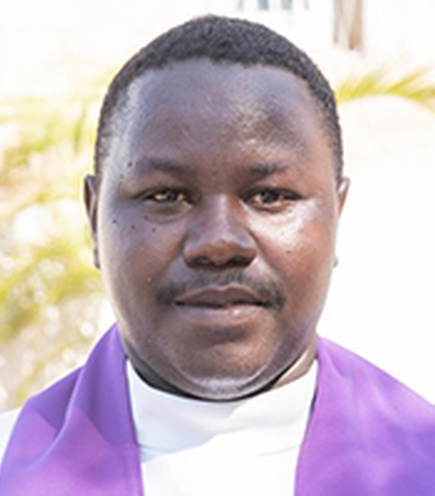Nairobi, Kenya
RNS
In a rare ruling, a Kenyan high court has sentenced a Catholic priest found guilty of assaulting a 16-year-old girl to spend the next three years preaching about the country’s sexual crimes law.
Rev Dominic Muli Nzioka, a priest who served a parish in Mivumoni, in the Archdiocese of Mombasa, was ordered by Justice Anne Ong’iinjo on 7th March to educate his congregrants about the country’s Sexual Offences Act.

A famous monument depicting elephant tusks spans Moi Avenue in Mombasa, Kenya. PICTURE: Alexandre Ultré/Wikimedia/Creative Commons.
The ruling came after Nzioka appealed a seven-year sentence issued last June by a magistrate’s court in the city of Mombasa. Ong’iinjo said she was setting aside that sentence, stipulating instead that in addition to probation, Nzioka will be required to give a sermon about the anti-sexual abuse law at least once a month. His compliance will be monitored by the priest-in-charge at his parish and his probation officer.
According to news reports, Nzioka sent the teen a text in September, 2020, at the height of the coronavirus pandemic, asking her to join him in his house. She later told the court that the priest had put alcohol in a coffee cup and handed it to her, before touching her inappropriately.

Rev Dominic Muli Nzioka. PICTURE: Via MombasaCatholic.org.
“The appellant, having breached the COVID-19 protocols and the church regulations, that children are not allowed to enter the parish house, as well as defying the victim’s mother not to interact with her daughter, makes this court believe that the prosecution’s evidence has been proved beyond reasonable doubt,” wrote Ong’iinjo in her ruling.
“While on probation, the appellant is hereby ordered to sensitise his congregants about the Sexual Offences Act at one Sunday in a month. Upon the completion of the period under supervision, the parish priest and the probation officer will file a report in court to confirm compliance,” said the judge.
Shamsa Abubakar Fidhili, a peace mediator and community organiser in Mombasa, objected to the ruling, saying it was too lenient to deter other predators.
“Religious leaders are supposed to be a safe haven for people to run to,” said Fadhili, the chairperson of the Mombasa Women of Faith Network, a branch of the Religious Council of Kenya.
Rev Henry Ndune, a priest in the Archdiocese of Mombasa, told Religion News Service that Catholic officials were also surprised at the sentence.
“While the church has an elaborate canon law, a secular court is telling a priest what to preach,” he said.
Nzioka’s sentence has ignited a debate among some clergy whether a government court ought to be able to decide the contents of a sermon. Clerics told RNS that preaching needs to come freely from the heart.
“It is punishment, and he will not be preaching the Gospel as we know it,” said Rev Joseph Njakai, an Anglican priest in Nanyuki, in central Kenya. “While it’s good that people will be educated about the law, the church should endeavor to address some of these issues.”
The Sexual Offences Act was passed in 2006 in an attempt to tame increasing cases of sexual violence. It names 14 sexual crimes, including gang rape, trafficking for sexual exploitation and child pornography.
This week’s court ruling has served to draw attention to recent indecent acts involving clerics in Kenya. In mid-March, another Catholic priest, Rev James Kamau, appeared before a court in Thika, charged with violating an 11-year-old girl.
We rely on our readers to fund Sight's work - become a financial supporter today!
For more information, head to our Subscriber's page.
In December, a pastor in Nairobi who had violated two minors after luring them into his house after church, was sentenced to 60 years in prison.
Early this year, churches in Kenya expressed alarm over increased cases of sexual abuse and the killing of women for their gender, or femicide.
According to statistics released by Femicide Count Kenya, an organization that monitors the killings as reported in local news, there were 58 deaths labeled as femicides between January and October 2022. In 2023, the organization recorded at least 152 killings, the highest in the past five years. In January 2024, there were at least 14 cases.
Africa Data Hub, an organisation that provides health data to newsrooms, said that from 2016 to 2024, 500 women in Kenya were victims of femicide.
“Silence on these acts is violence. Everyone must speak up to tame this pandemic,” Rev Ezekiel Lesmore, a Nigerian Lutheran pastor who is director of programs at the All Africa Conference of Churches, told church leaders, gender activists and ordinary Christians at an interfaith roundtable on femicide in February.






